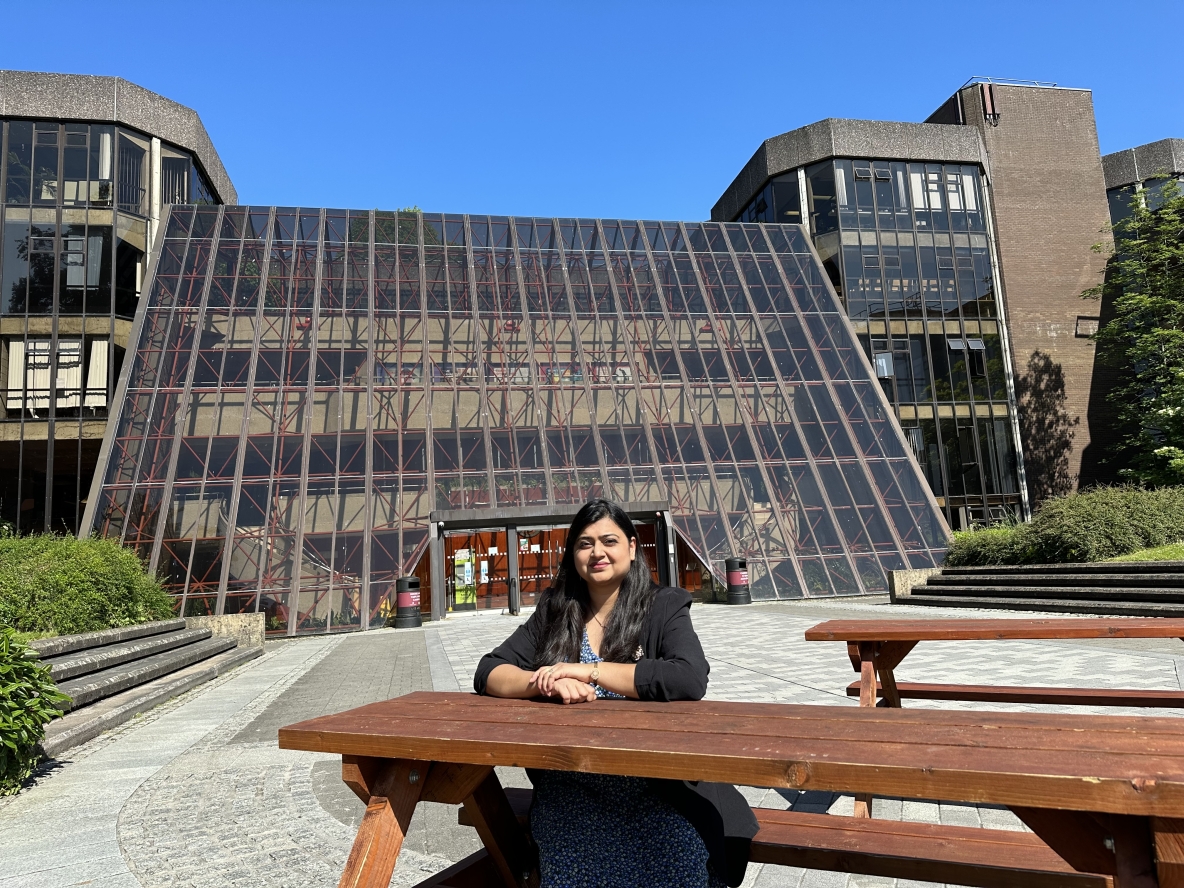

For some people, the career path is signposted early. In the case of Dr Lubna Luxmi Dhirani, the source of her life’s passion was revealed at an exceptionally young age. “One of my earliest memories is of visiting my father’s research lab after school hours and seeing him working on a computer.”
She was only four years old, but clearly fascinated by the PC’s jumble of plastic and wires, and wanted to type words on the keyboard. Her father encouraged her interest in the subject, and by age 12 she was regularly taking computers apart and putting them back together again.
It was the beginning of a journey she is still travelling, still curious about every new innovation and turn of 21st-century technology.
Today, her research interests include cybersecurity standards; cyber law and regulations; cloud, data security, governance risk and control.
As a technology speaker, she has delivered invited talks, keynotes and technical workshops focusing on industrial cybersecurity and industry 4.0/IIoT.
Her talk on ‘Cybersecurity Insights for Industrial IoT’ at the IEEE WIE International Leadership Conference 2021 ranked among the top 10 sessions worldwide.
As the first Women In Engineering (WIE) Ambassador from Ireland in the IEEE (Institute of Electrical and Electronics Engineers), Dr Dhirani completed her PhD in electronic and computer engineering from the University of Limerick in 2019, being the first woman from her ethnic Pakistani community to pursue a degree in this field.
Her PhD project was titled ‘Six Sigma based Novel Approach in Resolving Hybrid Cloud Computing QoS and SLA-based issues in Heterogenous Cloud Environment’. She did MSc in business information technology and B.Eng in computer systems.
Growing up in a minority Hindu community, the option of pursuing higher education and a career in engineering allowed for very few opportunities for girls at the time.
Determined to follow her dreams, she did a B.Eng in Computer Systems in 2006, where she remained a scholarship holder throughout her undergrad, becoming the first woman from her ethnic community to pursue a masters degree abroad.
Upon her return to Pakistan in 2008, she witnessed the beginnings of cultural change — particularly in “parents who would traditionally have saved money to get their daughters married off, but who was now ready to invest in their higher education and many even started applying for admissions overseas”.
This was a significant achievement, breaking stereotypes and opening doors for future generations. In 2015, she was awarded the Erasmus Mundus LEADERS scholarship for PhD at the Department of E&CE, University of Limerick, becoming the first woman to complete a PhD in this field, all the while standing by her motto — “I choose to challenge.”
Dr Dhirani is the course director for the BSc in cybersecurity apprenticeship practitioner programme at UL. She teaches cybersecurity modules at UL@Work OT Security Professional Diploma and the apprenticeship programme.
“The apprenticeship is a level 8 programme to facilitate a blended combination of on-the-job employer-based training and off-the-job training in cybersecurity to facilitate employee up-skilling and re-skilling.”
On completion of the programme, apprentices can develop systems using cognitive computing, the IoT, cloud computing, computer forensics and data retrieval.
“Apprentices will be skilled in building security systems along with investigating and implementing key security measures, undertaking risk analysis and analysis of security breaches.”
The arrival of covid-19 and the advent of working remotely has brought security of communications to the fore for all organisations. Given the increasing use of emerging technologies (Cloud, AI, IoT, 5G), concerns around the lack of security standards alignment, risk assessment, regulations and control, may lead the environment susceptible to data security and privacy issues.
As one size does not fit all, similarly each organisation being diverse in nature/operations requires a tailored/aligned cybersecurity strategy and solution to fit the business need and fill the security gaps/vulnerabilities that may exist across servers, network, infrastructure components, and endpoints.
“Security is not just about technology, it is also about standard operating procedures and work practices. Policies and standards must be adapted and updated to address the challenges that emerging technologies bring.
"It is important to understand that cybersecurity is everyone's job, even a smallest vulnerability if exploited has the potential to cause huge financial, data-loss and even put human lives at risk."
In her position as Women In Engineering Ambassador, Dr Dhirani devotes much of her time to encouraging greater female participation within Stem.
“I want girls and women to think outside the box in pursuing Stem fields. The best way to encourage women is by building a platform where they can share their research, seek valuable insights from mentors and grow together as a community.”
University of Limerick's UL@Work project recently launched The Master of Professional Practice — a masters programme designed for working professionals who want to take their careers to the next level and gain the skills and qualifications in their chosen field.
It is a part-time and customisable programme that combines three professional diplomas stacked over five years across all faculties at UL.
Professionals can stack programmes from other educational institutions across disciplines from AI, data analytics and cybersecurity to strategic leadership and human resource management to communications and law and technology.
(Source: Examiner Echo Group Ltd)